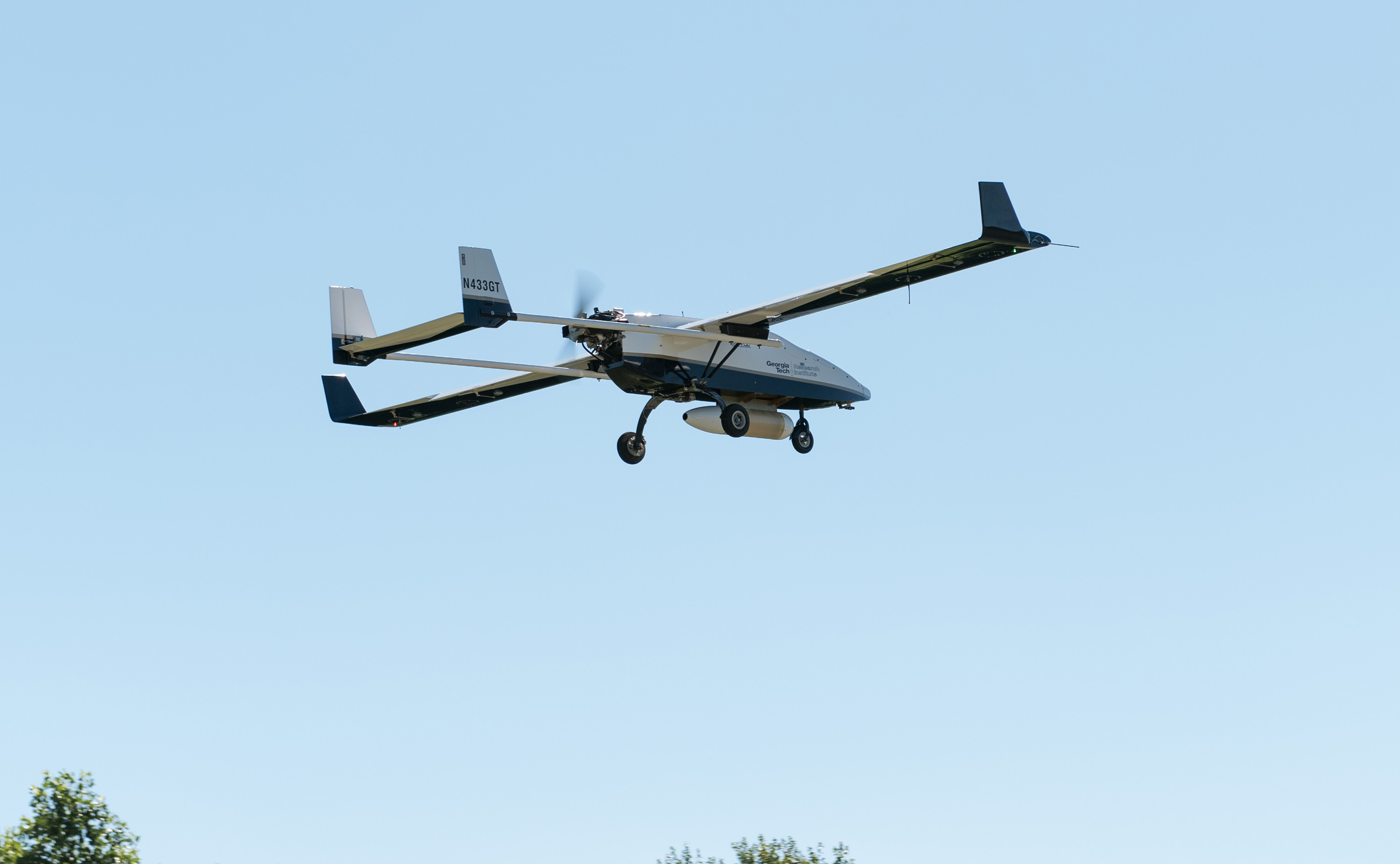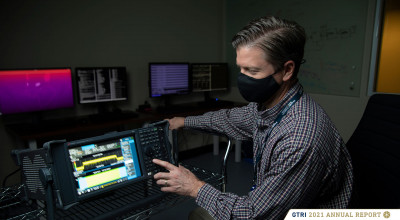
The Georgia Tech Research Institute (GTRI) has acquired two TigerShark unmanned aerial vehicles to support its research on airborne multi-sensor technologies. The UAVs have been flown and tested with a four-channel multimode radar that can be operated in both monostatic and bistatic configurations.
The military-pedigree TigerShark aircraft have significant capabilities for flying payloads and supporting tactically significant missions. The TigerSharks will also be used in GTRI programs that are developing algorithms for controlling multiple autonomous aircraft simultaneously as they collaborate on specific missions.
The TigerSharks have a 21-foot wingspan, a maximum takeoff weight of about 500 pounds, and significant on-board electrical capabilities. Other payloads for the aircraft include wideband signals intelligence (SIGINT) and coherent jammers based on GTRI’s Angry Kitten technology base.
“GTRI has extensive experience with sensor development, payload development and the fielding and execution of radar-focused missions,” said Breneman Whitfield, a GTRI research engineer who is responsible for integrating the new aircraft into GTRI’s research and development program. “The two TigerShark aircraft provide the payload capability and endurance time required to meet a new set of objectives in our research program.”
Beyond facilitating GTRI’s own research program, the aircraft are also expected to support customer needs for test and evaluation services. Having two aircraft greatly expands GTRI’s ability to support research in critical national defense issues, Whitfield noted.
“We will be providing data sets that don’t otherwise exist to facilitate algorithm development and modeling and analysis work,” he said. “Being able to have two TigerShark aircraft in flight at the same time gives us a new capability across many areas of research.”
GTRI personnel flying the aircraft are experienced pilots who have undergone extensive training to become the only civilians qualified to operate these aircraft. Furthermore, each mission involves extensive preflight planning and safety checks by support staff.
“There are several layers of safety built into the TigerSharks,” said Warren Lee, branch head for GTRI’s Unmanned Flight Operations. “At any time, a pilot on the ground can take over control of the aircraft and fly it using cameras and the kind of instrumentation used in piloted aircraft. The autopilot is programmed to keep the aircraft in approved flight test areas.”




